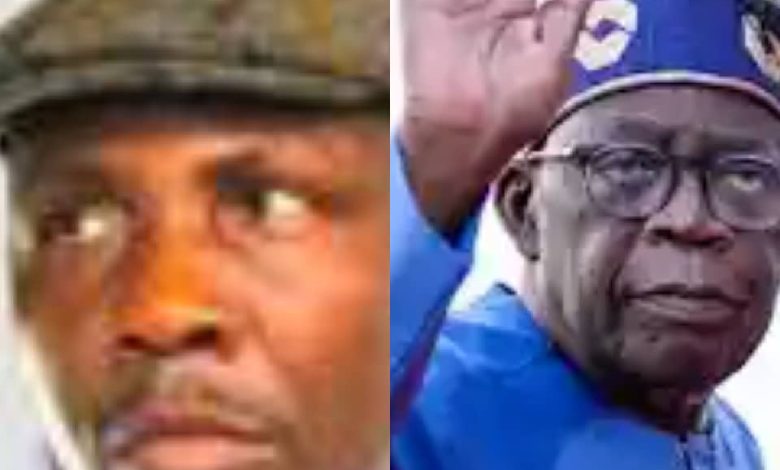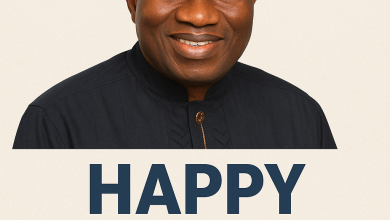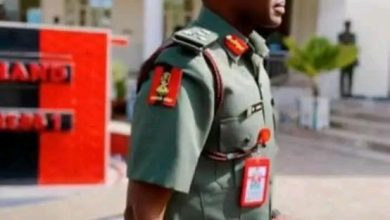Viral video:What pipeline surveillance contract cannot do does not exist—reactions as Tompolo endorsed Tinubu for second term

The video that is going viral in the social media space when Niger-Delta Ex-militant Leader, founder of Tantita Security Services Nigeria Limited, High Chief Government Ekpemupolo, alias Tompolo, endorsed president Tinubu for a second term of eight years in office.
In 2022, amid a sharp rise in crude-oil theft and pipeline vandalism that had crippled Nigeria’s output, the Nigerian National Petroleum Company Limited (NNPCL) awarded a pipeline surveillance contract to Tantita Security Services
a company owned by former Niger Delta militant Government O. Ekpemupolo (aka Tompolo). The award, announced in August 2022, was reported as N48 billion per year (about N4 billion per month).
The award provoked immediate controversy: critics objected that the contract went to a former militant and questioned transparency and procurement processes, while supporters argued the move was pragmatic
using a locally influential actor with on-the-ground reach to protect pipelines and reduce oil theft. Parliamentary and executive actors weighed in; the Senate’s petroleum committee publicly backed the contract later in 2022.
Over the next year the contract became a national flashpoint. Tantita’s work was credited by some officials with reducing theft and helping production recover, and NNPCL renewed/extended the arrangement at least once
moves that re-ignited debate in the media, among ex-militant groups, and in regional politics.
The award also generated legal and political challenges: opponents filed suits and public campaigns called for review or termination, while courts and some parliamentary panels examined the legality and performance of the contract. In recent reporting the courts have dismissed some challenges and upheld NNPCL’s deal with Tantita, while calls for review and local disputes among ex-militant leaders over shares of the security rents have continued into 2024–2025.
Today the Tantita/Tompolo pipeline contract stands as a brief but consequential chapter in Nigeria’s attempt to stop oil theft: it shows how the federal government moved rapidly to use an unconventional local security actor, stirring legal, political and social controversy even as officials pointed to improved pipeline security and higher production as justification.
High Chief Government Oweizide Ekpemupolo (“Tompolo”) publicly declared his support for President Bola Ahmed Tinubu to seek and win a second term, describing Tinubu as a seasoned leader whose policies and reforms justify continuity in office. Tompolo made the endorsement in interviews and public remarks in April
June 2025, saying Tinubu should be allowed to complete two constitutional terms and praising what he called the president’s nation-building and economic reforms.
His endorsement joined a string of pro-Tinubu voices and formal party moves
the ruling All Progressives Congress officially backed Tinubu’s re-election bid in May 2025
helping consolidate establishment support ahead of the 2027 election while also fueling debate among opponents and commentators about Tinubu’s record and the politics of incumbency.
In short: Tompolo’s public backing framed Tinubu’s potential second term as a continuation of reforms and stability from the Niger Delta leader’s perspective, and it added regional weight to the broader push within the ruling party for an incumbency campaign.
When High Chief Government “Tompolo” Ekpemupolo publicly backed President Bola Tinubu for a second term in mid-2025, the endorsement immediately split opinion across the Niger Delta
generating both vocal criticism and defensive counters from rival local actors.
Critics in the region
youth groups, some community activists and commentators
saw the move as a betrayal of the Niger Delta’s long-running demands for tangible development and direct benefits from oil resources. Commentaries argued Tompolo’s support looked like an alignment with an administration they say has under-delivered on Niger Delta grievances, and accused him of using his popularity for political patronage rather than regional interests.
The endorsement also sparked organised pushback: some groups staged protests and public condemnations, while other Niger Delta voices warned against perceived attempts to co-opt regional leaders into national politics – a dynamic that rekindled debates about who speaks for the Delta and whether security contractors or former militants should play partisan roles.
At the same time, defenders of Tompolo — including certain ex-agitator networks and local coalitions — argued the endorsement was pragmatic: they framed it as a bid to keep access to federal programs and to protect gains linked to pipeline security and local influence, and they warned against plots to “undermine” him. Those counter-voices helped blunt the outcry in some communities and complicated a simple “for vs. against” narrative.
In short: Tompolo’s endorsement sharpened existing fault lines in the Niger Delta — exposing tensions between local expectations of development and accountability, the political uses of former militant leaders, and the region’s internal divisions between critics and supporters.
Tarakirivoice is keeping tab as things unfold into the 2027 general election, what will be the fate, our hands crossed.





